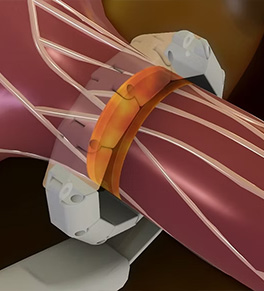Symptoms can include:
- Infertility
- Decreased body or facial hair
- Enlarged breasts
- Decrease in lean body mass and muscle strength
- Obesity
- Decrease in bone mineral density
- Reduced sexual desire (libido)
- Erectile dysfunction
- Ejaculatory dysfunction
- Delayed orgasms
- Decreased testes size
- Metabolic syndrome
- Insulin resistance
- Type 2 diabetes mellitus
Other signs are hot flushes, changes in mood, depression, irritability, decreased memory or reasoning, fatigue, sleep disturbances.
In boys, low testosterone can result in delayed puberty.
There are many testosterone replacement therapies. Your treatment should be geared toward your specific condition, preferences and expectations, as well as any considerations raised by your physician.
The most common treatment options are topical gels and patches. Others include short- and long-acting intramuscular injections (commonly into the butt cheek) or the implanting of testosterone pellets (Testopel©) near the hip. The latter option has the advantage of achieving steady serum testosterone levels for three to six months, which avoids the roller-coaster effect sometimes seen with other treatments.
Yes, but first it must be emphasized that testosterone therapy, like any medical treatment, can have side effects. These may include increased blood viscosity, breast enlargement or testicular shrinkage. These side effects can generally be prevented or easily managed if you have routine follow-ups with a physician trained in testosterone replacement therapy.
Second, while most men seek testosterone therapy to treat a real medical condition (hypogonadism), others, unfortunately, have abused testosterone replacement therapy for anabolic (exaggerated muscle building) and performance purposes. This can lead to dangerously high and unregulated levels of testosterone enhancement, which can have potentially serious side effects.
This can only be answered on a case-by-case basis. It is important to recognize that prostate cancer occurs on a spectrum ranging from locally contained (low risk) to widespread (advanced risk) disease.
If you have low-risk prostate cancer and low testosterone, the benefits of testosterone replacement therapy usually outweigh the risks. Conversely, in cases of aggressive or widespread disease, testosterone replacement therapy is typically not advocated. You should always consult with your oncologist and andrologist for a thorough risk-benefit assessment.
It may seem counterintuitive, but testosterone replacement therapy is actually a form of male contraception. When given to a man, it acts on the the brain to suppress natural testosterone production as well as sperm production in the testicles.
If you have low testosterone and would like to preserve your fertility, there are other options for treatment, such as clomiphene citrate and human chorionic gonadotropin (HCG), that may promote natural testosterone secretion and maintain, or even improve, your sperm production.
Featured Blog Posts

Genitourinary syndrome of menopause: It’s common and treatable

First U.S. test of nerve-blocking device for resistant hypertension
Procedure zaps renal artery nerves linked to hypertension without damaging the blood vessel.





